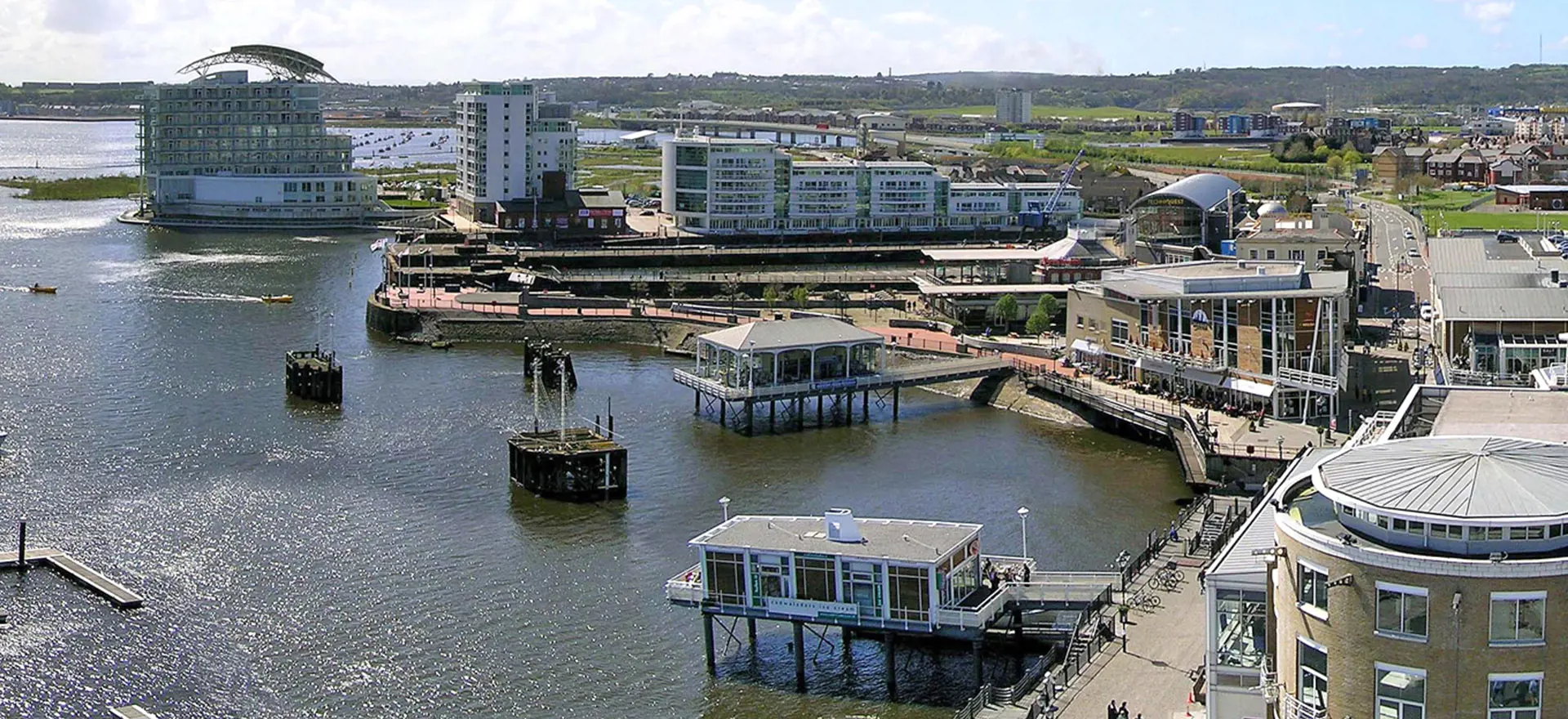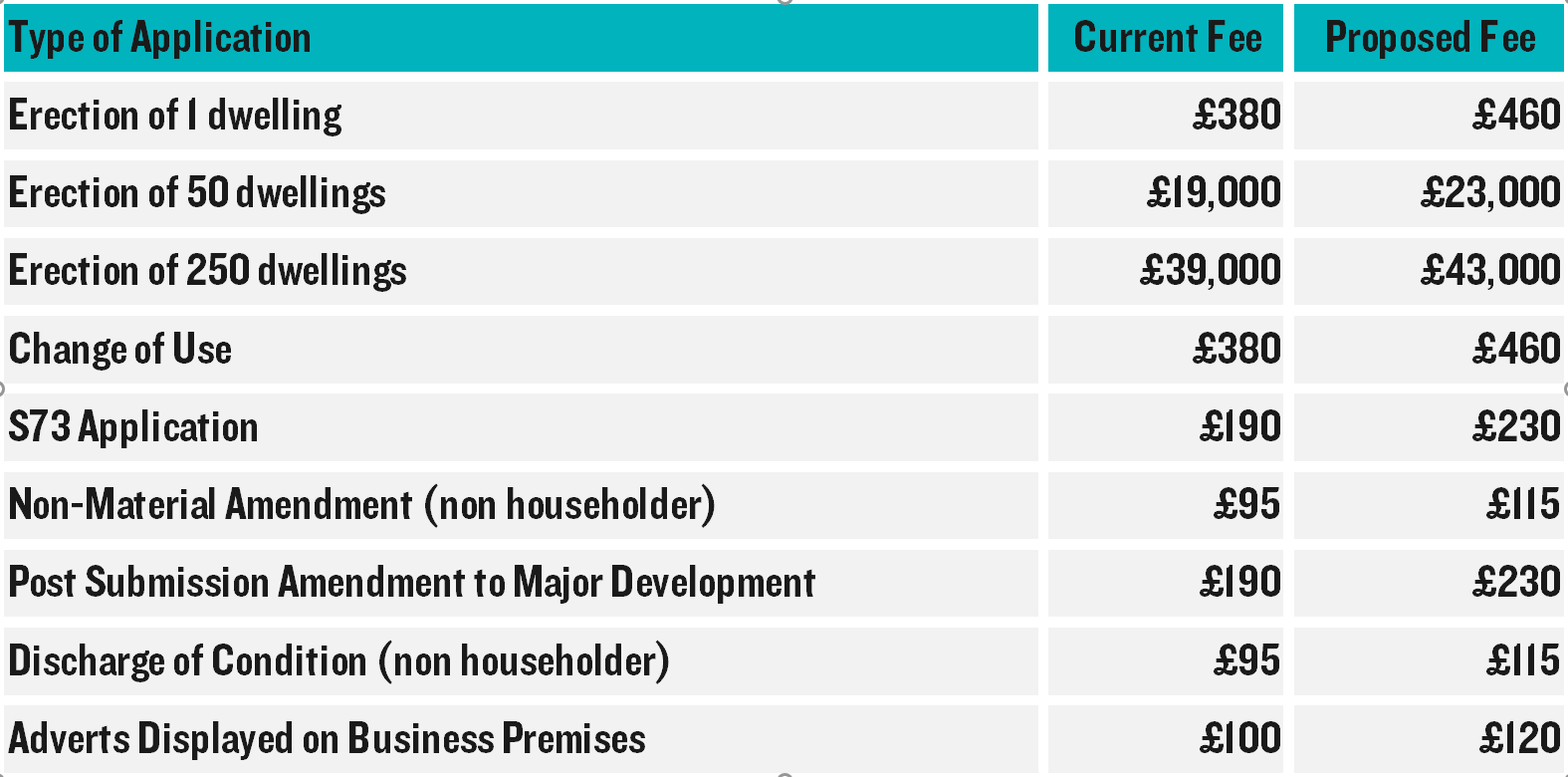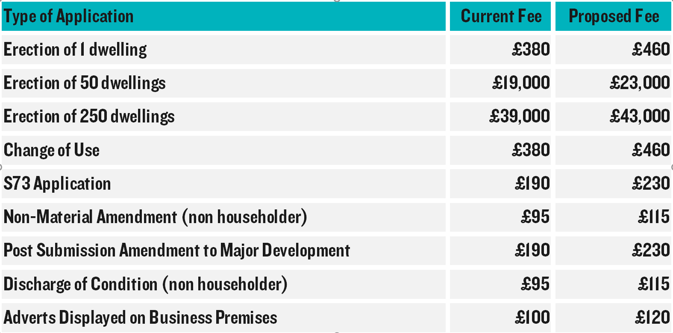On the 16th December 2019, Welsh Government issued a consultation proposing changes to planning application fees. Essentially, what is proposed is an increase across the board of approximately 20%, the first increase in application fees in Wales since 2015. This appears to be an interim proposal, with the Welsh Government explaining that it will carry out further research in due course to understand the true cost of running development management services. As an example, they say that their evidence demonstrates that minor and householder applications typically cost much more to determine than the fee set by legislation, even with the proposed 20% increase. From our experience, the same could be said about s.73 applications which currently attract a fee of £190, but as we know, can be as complex and time consuming as a full application.
The consultation document explains that a Local Planning Authority’s (LPA) primary source of funding is generated from fee income received from determining applications, which are intended to recover the costs for providing the service. However, the costs of running development management services is currently not being met. This is for a number of reasons including additional requirements on development management services due to revised legislation, changes to regulations and policy as well as cutbacks to planning departments as a result of cuts to local government funding.
The Welsh Government explains that, alongside general budget cuts of approximately 53% to planning services between 2009 and 2017 the lack of funding secured by application fees could have an impact on the quality and timing of planning decisions. Its evidence suggests that the current fee levels for applications is not sufficient to run an efficient development management service.
Whilst the current fee structure set out in the 2015 Regulations saw the most recent planning application fees increase in Wales, over the border in England, planning application fees were increased by 20% in 2017. At the time the Royal Town Planning Institute (RTPI) commented that:
“planning fees, even with an increase of 20% recently, only cover 40% of the overall running cost of development control services in England” suggesting that there is still a long way to go before planning departments can fully recover their costs.”
It is therefore important to note that a 20% increase may not be a panacea to a fully functioning planning service.
So, what will this mean to those that regularly submit planning applications? Below we have set out the proposed application fees for a range of different applications going forward:
The below are theoretical examples only and should not be relied upon when calculating planning application fees. Please contact Lichfields if you require advice on calculating your planning application fee.
We also note that it is proposed that the maximum fee limits will increase. For full applications for residential development the fee limit is proposed to increase from £287,500 to £300,000 and for outline applications the fee limit is proposed to increase from £143,750 to £150,000 respectively.
Whilst an increase in application fees is not something that any developer would necessarily wish for, developers may conclude that paying slightly more may be worthwhile, but only if the service they receive from a planning department improves in line with the fee increase.
Welsh Government statistics
[1] show that the average time taken to determine ‘major’ applications in 2017/2018 was 240 days and that only 67.4% of applications were determined within the statutory time periods. The additional income as a result of this increase could in theory provide additional funds to recruit additional staff, which should potentially improve the quality and speed of service. However, a key question is whether the additional income generated is ringfenced for re-investment to the planning department (and associated internal consultees e.g. transport and drainage officers) as opposed to being used for wider local authority services. The consultation paper is unsurprisingly mute on this point.
As is explained in the consultation paper it is also important that local government funding for planning departments is not cut further as a result of the additional income generated by the increase in fees. Otherwise, the rationale for the 20% increase cannot be justified and it is likely that the planning service will see a further deterioration, rather than the intended improvements in efficiency and quality.
The RTPI’s research
[2] into the “value of planning” reports that the planning system contributed £2.35 billion to the Welsh economy in 2016-17. Therefore, given the importance of the planning regime in realising social, economic and environmental benefits it is crucial that the Local Planning Authorities are properly funded. It is hoped that the increase in planning fees will assist in securing faster and better decisions from the LPAs, which is in the interest of the applicant, the authority and the general public – not to mention the economy.
Comments are invited on the consultation document until 13 March 2020.
[1] All Wales Planning Annual Performance Report 2017-18[2] The Value of Planning in Wales





